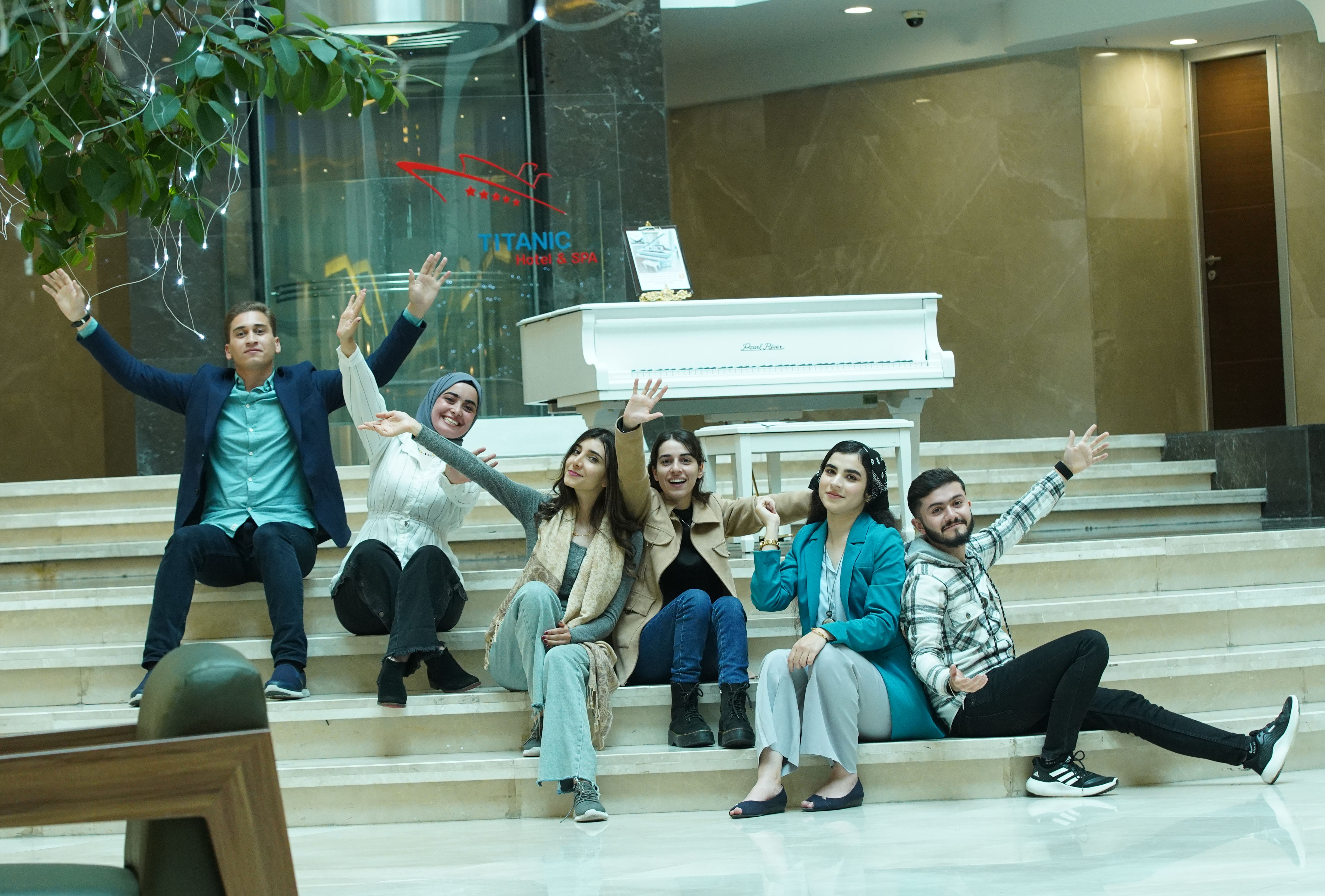Grass-roots peace action needed in Iraq and Somalia
The peace projects launched by the Ministry for Foreign Affairs in Iraq and Somalia have brought together people, and especially young people, who share an interest in the challenges facing the country and society, and in peace building. Millions of viewers have been reached through social media and television over the four years of projects.

One goal of the projects has been to inspire young people in particular, not only to work for peace but also to exert influence in society through the media. The work has been carried out with vitally important support from local partners.
The Salam project in Iraq has provided one hundred young people with an opportunity to network.
Annual workshops have been organised for young people, offering participants opportunities to develop solutions to issues that concern them and bring them up in the media. This year's workshop emphasised the importance of promoting mental health care. This topic is not considered particularly important and there is little public discussion on young people's mental health in Iraq. However, many young people suffer from traumas they sustained during the ISIS occupation, for example.
Some of the young participants preferred to focus on the image of Iraq created by the news. Today, the picture presented in the news is almost exclusively negative. Young people considered it important to make news coverage more comprehensive and versatile by highlighting Iraq's long and rich history and culture.
Over 5,000 applications were processed in the Salam project over a five-year period, and the project provided about one hundred young people with an opportunity to network with other young people interested in peace work. In a country like Iraq, young people have very few opportunities to influence society, and the project offers young people an opportunity to make their voices heard. The workshops will also provide the participants with a link to Finland. - I believe that information about Finland and especially discussions have given young people new perspectives on the world. They have also been able to see their own country as part of the international community, Ambassador Matti Lassila noted about the discussions with young people.
Exerting influence in Somalia through documents and discussion programmes
In Somalia, the project funded by the Ministry for Foreign Affairs aims to promote forgiveness, dialogue between different groups, social cohesion, empowerment and solidarity among young people, and to break the spiral of vengeance. The documents and discussion programmes implemented in the project have already attracted a large audience on Somali television and social media.
During 2022, Somalis were affected by the coronavirus pandemic and political instability. At the same time, there has been active fighting against al-Shabaab, which has led to significant losses of areas by the terrorist organisation.
Al-Shabaab remains, however, an important force in Somalia. In addition, the high unemployment rate, which creates a lack of prospects among young people, creates fertile ground for the organisation, clans and the government to recruit soldiers. Many young people are bittered by experiences of war. It is difficult to give up arms, especially for representatives of minority clans who fought in al-Shabaab because of the stigma it has caused.
The stigma makes it more difficult to integrate back into society, and discrimination against minority clans makes it even more difficult. If the spiral of vengeance continues, it will be difficult for society to get on its feet. The Ministry for Foreign Affairs' peace and forgiveness project was set up to address this problem.
- Although dialogue takes place at the political level, there have been few acts of forgiveness and reconciliation that interfere with root causes. Forgiveness, reconciliation and breaking the spiral of vengeance are needed also at the grass-root level among ordinary people, especially young people”, said Wali Hashi from the Wali Media Production Center, who leads the Somalia project
Somalia's project in its final stages
The project, which started in 2020, includes a three-part short documentary series, one longer documentary, two discussion programmes, and youth workshops and a piece of rap music. The last part of the short documentary series and a discussion programme on climate change were published in 2022. The discussion programme in Somali was shown on the national SNTV channel and can still be viewed on YouTube(Link to another website.). It is estimated that the programme has attracted hundreds of thousands of viewers on television and social media.
The second discussion programme on propaganda, disinformation, hate speech, human rights, solidarity and forgiveness will be made in the autumn. In addition, workshops will be held in schools towards the end of the year and rap songs for young people will be produced in cooperation with Somali artists. The plan is also to make a longer document outlining the future of Somalia.
Kalle Laurinen
Links:
Iraqi and Afghan youth are motivated by a desire to promote peace
“I am a living example of forgiveness”
“The clan system in Somalia is holding up peace development”
Young ambassadors for peace resolve conflicts and break the chain of revenge
Foreign Ministry's Salam Peace Project promotes media skills and networking among young people
Young ambassadors for peace in Iraq and Afghanistan sought by the Ministry for Foreign Affairs
